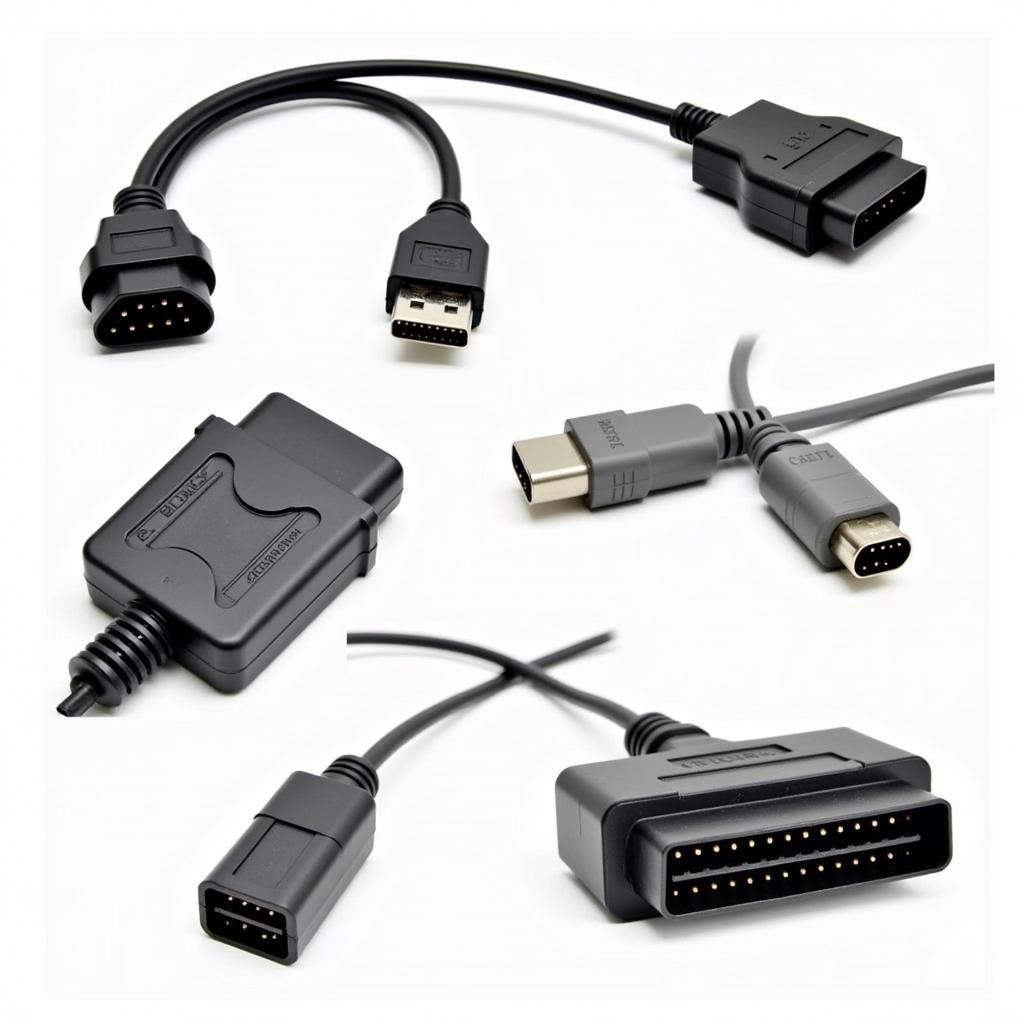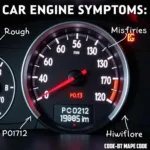In the world of automotive diagnostics, the transition from OBD1 to OBD2 marked a significant leap forward. However, it also presented a challenge for owners of older vehicles equipped with OBD1 systems. Fortunately, an OBD1 to OBD2 adapter acts as a bridge, allowing you to access diagnostic information using modern OBD2 scanners. If you’re searching for a reliable adapter, AutoZone offers a variety of options to suit your needs.
Understanding OBD1 and OBD2 Systems
Before diving into the world of adapters, it’s essential to understand the key differences between OBD1 and OBD2:
OBD1 (On-Board Diagnostics 1): Introduced in the late 1980s, OBD1 systems were manufacturer-specific, meaning diagnostic procedures and connectors varied widely between car makes and models. Retrieving diagnostic trouble codes (DTCs) often involved deciphering blinking lights or using specialized tools.
OBD2 (On-Board Diagnostics 2): Standardized in 1996, OBD2 revolutionized automotive diagnostics. It introduced a universal connector, standardized communication protocols, and a common set of DTCs, making it easier for mechanics and vehicle owners to identify and troubleshoot issues.
Why You Might Need an OBD1 to OBD2 Adapter
If you own a vehicle manufactured before 1996 with an OBD1 system, you might encounter situations where an adapter becomes indispensable:
- Accessing OBD2 Scanners: Modern OBD2 scanners offer advanced features and comprehensive diagnostic capabilities. An adapter allows you to utilize these tools on your OBD1 vehicle.
- DIY Diagnostics: For the home mechanic, an adapter opens up a world of DIY diagnostics, enabling you to read and clear DTCs, monitor engine performance, and identify potential issues before they escalate.
- Troubleshooting Complex Problems: When faced with intricate electrical or emissions-related problems, an adapter facilitates communication between your car’s system and a diagnostic tool, aiding in accurate diagnosis and repair.
Choosing the Right Adapter at AutoZone
AutoZone offers a range of OBD1 to OBD2 adapters to cater to different vehicle makes and models. When selecting an adapter, consider the following factors:
Vehicle Compatibility: Ensure the adapter is specifically designed for your vehicle’s make, model, and year.
Connector Type: OBD1 connectors vary significantly. Verify the adapter has the correct connector to interface with your vehicle’s diagnostic port.
Cable Length: A longer cable provides greater flexibility during use.
Build Quality: Opt for a durable adapter with sturdy connectors to ensure a reliable connection.
Using an OBD1 to OBD2 Adapter
Using an adapter is generally straightforward:
- Locate your vehicle’s OBD1 diagnostic port. Consult your owner’s manual or search online for its location.
- Connect the OBD1 end of the adapter to your vehicle’s diagnostic port.
- Connect the OBD2 end of the adapter to your OBD2 scanner.
- Turn on the ignition but do not start the engine.
- Begin scanning your vehicle using the OBD2 scanner.
Expert Insight:
“Always double-check compatibility before purchasing an adapter,” advises Mike Thompson, Senior Automotive Technician at CarCare Clinic. “Using an incompatible adapter can potentially damage your vehicle’s electrical system.”
Benefits of Using an OBD1 to OBD2 Adapter
The advantages of utilizing an OBD1 to OBD2 adapter extend beyond simply bridging a technological gap:
- Cost Savings: Diagnosing issues yourself using an adapter and an OBD2 scanner can save you money compared to frequent trips to the mechanic.
- Early Problem Detection: Regular diagnostics can help identify potential problems early on, preventing costly repairs down the road.
- Improved Vehicle Performance: By monitoring engine parameters and identifying issues, you can contribute to maintaining optimal vehicle performance.
- Increased Resale Value: A well-maintained vehicle with a documented diagnostic history can command a higher resale value.
Conclusion
While OBD1 systems have largely been phased out, an OBD1 to OBD2 adapter serves as a valuable tool for owners of older vehicles. It enables access to the advanced capabilities of modern OBD2 scanners, empowering you to perform DIY diagnostics, troubleshoot issues effectively, and ultimately, keep your vehicle running smoothly.
Looking for a reliable OBD1 to OBD2 adapter? Explore the wide selection available at AutoZone and choose the perfect adapter to unlock the diagnostic potential of your OBD1 vehicle.
Need expert assistance? Contact us via WhatsApp: +1(641)206-8880 or Email: [email protected]. Our dedicated support team is available 24/7 to assist you.


